Once upon a time there was an Italian girl who loved jazz, had a wonderful voice, and dreamed of learning from the best jazz musicians – so she moved to the United States. Since her immigration in 1998, Roberta Gambarini built a successful career and is seen as one of the best jazz singers of today, but she also did not forget her homeland. As part of the Bridging Europe festival, she is going to represent Italy in Budapest. Related to that, she told me about how life was with her parents who adored jazz, what the differences are between American and Italian jazz life, who helped her career as mentors, and how she imagines the future of jazz.
Have you ever played with the Budapest Jazz Orchestra in the past?
No, this will be the first time. But I have listened to a lot of their other collaborations, and they are wonderful, so I am looking forward to playing with them. I am constantly working with orchestras, literally all around the world, from Latvia to Germany, from America to Africa, wherever there is a big band. So now it is time for a Hungarian one!
In such collaborations, how do you put together what to play?
I have my own book, a so-called Book of Arrangements, which was made for me. I am fortunate enough for having had the chance, since the beginning of my career, to work with great composers and arrangers such as Slide Hampton or Jimmy Heath, who wrote arrangements for me that I have in my book. Benny Carter, who was my mentor, also allowed me to use his vocal arrangements. So there are a lot of great things that were made for me. But this will be an extraordinary programme with the Budapest Jazz Orchestra, because it is part of the Bridging Europe festival, and I was invited to represent Italy. So there will be something very special here, crafted for this occasion, which will make up roughly half of the programme.
Namely, I will perform some songs that are in my repertoire but I have never arranged them for a big band before, like a medley of Cinema Paradiso by Ennio Morricone, and also other Italian themed music. In general, I will sing a lot in Italian, which is also special, because I mostly sing in English. I mean, there are some Italian songs in my usual repertoire, like the jazz standard Estate, but not many. At this Bridging Europe performance, there will be more than usual, and some are quite well-known tunes. A wonderful Italian arranger named Duccio Bertini is working on some of these charts, so there will be songs specifically created for the Budapest audience.
This Italian programme kind of brings you back to your roots. How did your own story in Italy start? Have you always wanted to be a musician?
Yes, I kind of grew into this profession, I did not even have to choose it. My parents were fans of jazz, they even met at a jazz concert. When they were young, there was a vivid club life in Italy, and they got to know a lot of jazz players whom I subsequently also got to know; they became my friends and role models. Gianni Basso, Renato Sellani, Franco Cerri… Yes, jazz had a flourishing culture in post-war Italy. My father himself played the tenor saxophone and wanted to be a professional musician, but unfortunately, it is very difficult in Italy to get into this profession. There are not as many chances for music schools and scholarships in jazz like, for instance, in the US. So my father gave up his own dream of being a musician, but he always encouraged me to pursue my own career. I basically had this music in my ears since I was born. And even until today, I play for my father, who unfortunately died exactly on this day five years ago (the interview was done on 20 June – editor’s note).
So I guess you moved to the US because you had better opportunities there…
I gave my very first concert in Italy at the age of 17, which is a lovely memory. But I think it was inevitable for me to leave my country and go to the place where jazz, this distinctly African American music, is from. It is similar to those people’s life story to do it the other way around and come to Italy to learn Italian opera from an authentic source. For me, this source was the US. One big motivation for me was to get to know great masters of jazz, to establish relations with them, and understand as much as I can from their culture and their secrets. Because whenever they gave concerts back in Italy, the best I could hope for was to talk with them for a few minutes in the dressing room, and then they had to leave for the next city. However, in the US, I really got to know them. Suddenly I was there, hanging out with James Moody… Incredible experiences!
I was very lucky to get a lot of support, probably also because US musicians saw the resilience in my story: I left my country, came to a completely different place, did not know people or had a scholarship first, I even had to practice the language. Musicians like James Moody and Benny Carter took me under their wings, I became part of their family, and through that, I gained a completely different outlook on music. I feel extremely blessed to have met so many of that great generation, because most of them are gone by now. They were wonderful both as musicians and human beings, and as life continues, we have to spread the message they brought into this world.
Speaking about that: how do you see the future of jazz?
It is an interesting question. I think jazz can only develop in an environment where there is resilience against struggles. These can be external, but also internal struggles. And I also believe that you can only thrive and develop as a jazz musician under the premise of a spiritual evolution. In this sense, I am very much inspired by the message of Dizzy Gillespie. I didnt get to meet him but he was one of my greatest influences, and a follower of the Bahaí faith. He had this philosophy that music, and especially jazz, is a universal force, a language that has the most potential to unite the people all around the world beyond the boundaries of differences, whether ethnic, language, or anything.
And it is so true! You can play jazz with people even if you don’t speak each other’s language. Jazz can be an ultimate tool to unite and bring peace among the people in the world. It is extremely difficult in such a divided world we live now, but I firmly believe that if we are able to recuperate and revitalise this message, jazz can go very far. So, even though I cannot predict where the future of jazz leads, but what is sure is that there are some very promising young talents. I think it all depends on how they are going to fit into this world.
And maybe you are their next mentor…? 🙂
I dont think of that in this way. I guess what I try is to pass on the spiritual message I just described above. It is difficult because many are not ready or willing to hear it. But I would not say it is mine, it was simply gifted to me so that I would gift it in turn to others. I have gone through a long journey, but I’m just the messenger.
But meanwhile, they call you one of the best jazz singers of our time…
As I said, I was very fortunate that my dream came true. Because first and foremost, my dream was to sing this music, and then to be part of the family of those great musicians who saw something in me and decided to nurture my talent. This is really amazing.
What else are you going to do before the Budapest concert in September?
I will go on tours again, which is a huge relief after these very hard years of the pandemic. Soon I am going to the Far East, Singapore, to sing with an amazing pianist and arranger by the name of Jeremy Monteiro, and after that, I will work on exciting recording projects that are coming in 2024 and 2025. Some even started before the pandemic but had to be put on hold then. For example, I have a project of a fusion of jazz and tango with Pablo Ziegler, a Master piano player and composer who was part of the legendary Astor Piazzolla’s quintet for decades- it will be an excellent mixing of cultures. I also have an upcoming album duo with one of today’s greatest pianists : Cyrus Chestnut, and also an album with a symphony orchestra recorded in Tuscany… I am so happy that after all this sorrowful time, I am able to focus on these projects again.

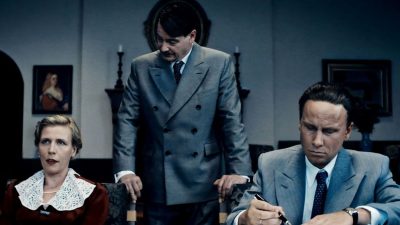
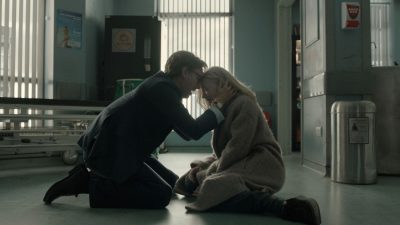


















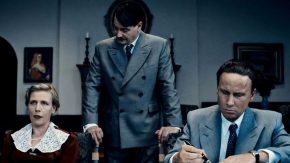
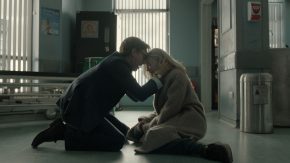

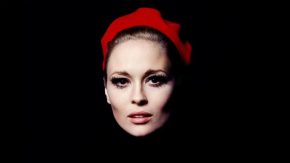

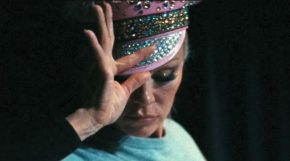
Comments